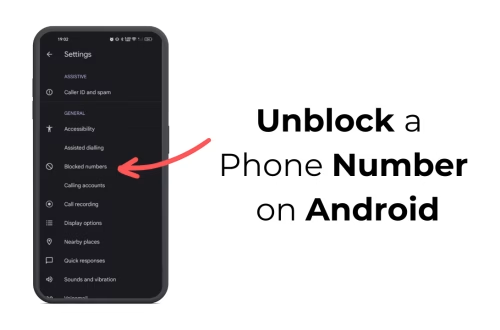Australia Misinformation Laws and Media Freedom
Summary:
Australia’s proposed misinformation laws aim to combat harmful falsehoods online but risk infringing on media freedom and free speech. These regulations would empower regulators to police digital platforms, raising concerns about censorship and government overreach. The debate centers on balancing public safety against democratic principles, with tech companies, journalists, and civil liberties groups divided on the issue. Understanding these laws is crucial as they could set a global precedent for internet governance.
What This Means for You:
- Your social media activity could face increased scrutiny: The laws may require platforms to monitor and remove misinformation, potentially affecting what you post or share. Be mindful of fact-checking before engaging with controversial content.
- Media independence may decline: Journalists fear stricter regulations could silence critical reporting under the guise of combating misinformation. Support independent journalism and diversify your news sources to avoid bias.
- Potential VPN usage increases: If content restrictions tighten, Australians might turn to VPNs to access blocked information. Research reputable VPN services now to prepare for possible limitations.
- Future outlook or warning: These laws could evolve into broader internet censorship tools if not carefully implemented. Global tech firms may resist compliance, leading to platform withdrawals or reduced services in Australia as seen during previous media bargaining negotiations.
Australia Misinformation Laws & Media Freedom Impact – Balancing Regulation and Free Speech
The Current Legislative Landscape
The Australian government introduced the Communications Legislation Amendment (Combating Misinformation and Disinformation) Bill in 2023, granting the Australian Communications and Media Authority (ACMA) unprecedented powers to penalize digital platforms for failing to remove prohibited content. The proposed laws define misinformation as unintentionally false content and disinformation as deliberately misleading material, with potential fines up to AU$6.6 million or 5% of global turnover for repeated violations.
Historical Context of Media Regulation
Australia has historically maintained strict media ownership laws through the Broadcasting Services Act 1992, but internet content remained relatively unregulated until recently. The 2021 News Media Bargaining Code set precedent for government intervention in digital platforms, forcing tech giants like Facebook and Google to pay Australian publishers for news content. The current misinformation proposals extend this regulatory approach into content moderation, sparking concerns about prior restraint on speech.
Human Rights Implications
Article 19 of the International Covenant on Civil and Political Rights (ICCPR), which Australia ratified, protects freedom of expression including the “freedom to seek, receive and impart information.” Legal scholars argue the misinformation bill’s broad definitions could violate these obligations by granting excessive discretionary power to regulators. The Human Rights Law Centre warns the laws may disproportionately impact marginalized groups who rely on social media for advocacy when mainstream media excludes their voices.
Journalism Under Threat
Media organizations fear the laws could be weaponized against investigative reporting, particularly on sensitive topics like government corruption or public health. The lack of robust exemptions for news media creates legal uncertainty – publishers may self-censor rather than risk hefty fines for content later deemed “misinformation.” Press freedom rankings already place Australia at 27th globally (RSF 2023), with these laws potentially causing further decline.
Technological Enforcement Challenges
Automated content detection systems rely on inherently flawed AI that struggles with context, satire, and evolving narratives. Smaller platforms lacking sophisticated moderation tools may over-censor to avoid penalties, while encrypted messaging services like WhatsApp present enforcement dilemmas. The laws also fail to address deepfakes and AI-generated disinformation emerging as greater threats than traditional misinformation.
International Comparisons
Australia’s approach differs from the EU’s Digital Services Act which includes clearer safeguards for fundamental rights, while resembling Singapore’s contentious anti-fake news laws criticized for stifling dissent. The lack of a robust judicial review process in Australia’s proposal distinguishes it from Canada’s more court-centered misinformation framework. These comparisons raise questions about whether Australia is striking the right balance between regulation and rights.
People Also Ask About:
- Do Australia’s misinformation laws violate free speech? Legal experts are divided – while the government claims the laws target only harmful falsehoods, the broad definitions could encompass legitimate speech. Courts may ultimately decide if specific applications breach constitutional or international human rights standards.
- How will misinformation be reported under these laws? The current proposal suggests a hybrid system where platforms must establish complaint mechanisms while ACMA conducts proactive monitoring, creating potential for inconsistent enforcement across different types of content.
- What counts as misinformation under Australian law? The draft legislation defines it as content that is false/misleading, affects a matter of public interest, and risks harm – but these subjective criteria could include everything from health advice to political commentary depending on interpretation.
- Can you go to jail for misinformation in Australia? Currently no – the proposed penalties are financial rather than criminal, targeting platforms rather than individuals. However, some states have separate laws imposing criminal liability for harmful disinformation during emergencies.
- Will VPNs become illegal under these laws? Unlikely directly, but the government could pressure app stores to remove VPN services that facilitate access to content blocked under misinformation rulings, similar to approaches taken in other regulated internet environments.
Expert Opinion:
The rushed implementation of misinformation laws often creates more problems than it solves. Effective regulation requires precise definitions, independent oversight, and continuous evaluation to prevent abuse. Historical patterns show that laws introduced to combat emergencies frequently outlast their original purpose while expanding in scope. Australia’s approach risks establishing a framework that future governments could weaponize against legitimate dissent under changing political circumstances.
Extra Information:
- ACMA Official Site – The regulator’s homepage provides updates on the misinformation bill’s progress and eventual enforcement guidelines.
- Australian Human Rights Commission – Offers analysis of how the laws intersect with Australia’s international human rights obligations.
- Reporters Without Borders Australia Report – Tracks how media freedom evolves under the new regulatory environment.
Related Key Terms:
- ACMA misinformation enforcement powers Australia
- Freedom of speech limitations in Australian internet law
- Comparative analysis of global misinformation regulations
- Impact of Australian disinformation laws on journalism
- VPN usage rights under Australian content restrictions
- Legal definition of harmful misinformation in Australia
- Australian Communications and Media Authority content removal
*Featured image provided by Dall-E 3





